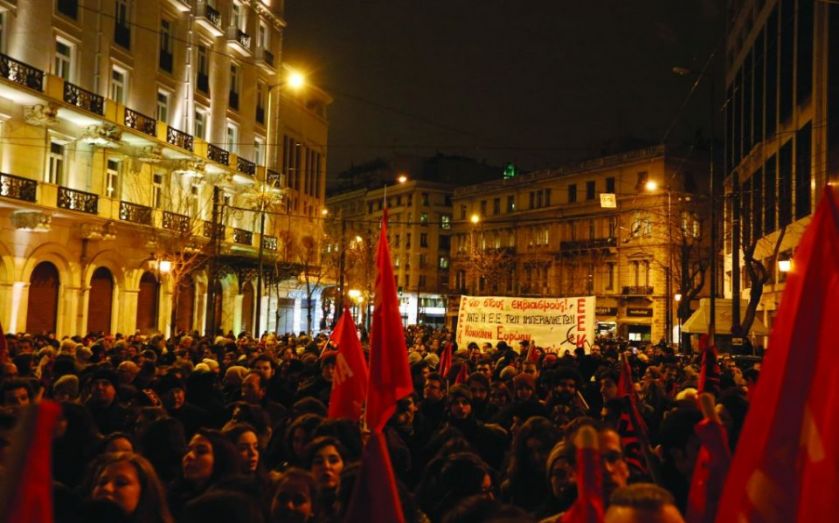Economists warn Greek banks running out of cash

Greek banks were granted an additional €5bn (£3.7bn) worth of emergency lending yesterday to cope with deposits fleeing the system. Money began leaving the banking system when snap elections were called in December, and the outward flows appear to show no sign of letting up.
“It seems that deposit outflows continue, and have been higher last week compared to the week before, starting 26 January, which was the week that outflows moderated following the elections,” Nondas Nicolaides, a senior credit officer at Moody’s, told City A.M.
“This week and next week will be crucial for deposits in view of the Eurogroup meetings,” he said.
Another expert said things could get worse before they get better.
“If the outflows accelerate further, capital controls or temporary bank closure could not be ruled out,” said economist Michel Martinez from Societe General.
According to Tim Congdon, chief executive of International Monetary Research, Greek banks are desperately short of cash.
“Because they hold less than €2bn in cash, a run on any of the €160bn to €170bn or so of deposits must be replaced – immediately, in the first instance – by extra borrowing,” he said.
The European Central Bank recently said it would stop accepting Greek government bonds as collateral for such emergency borrowing, meaning Greek banks must borrow from the Greek central bank. However, the Greek central bank has a limit set by the ECB, which was raised by €5bn yesterday to €65bn.
But Congdon warned this has a limit and cannot continue to rise. The ECB can vote against granting Greece extra emergency lending by voting with a two-thirds majority and are expected to reconvene on the matter once a fortnight. Worryingly for all, the slowdown in deposit outflows last week has only been temporary.